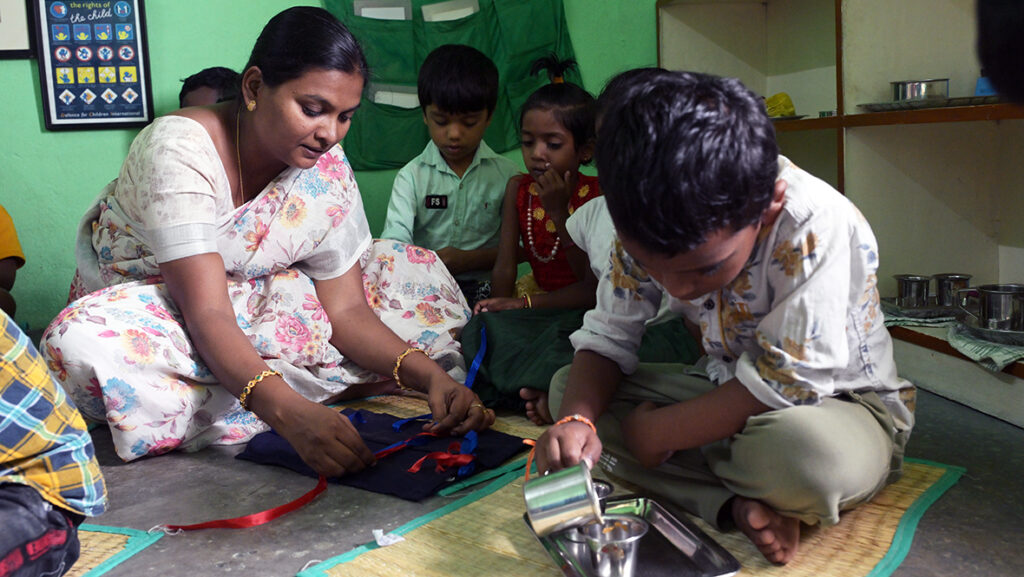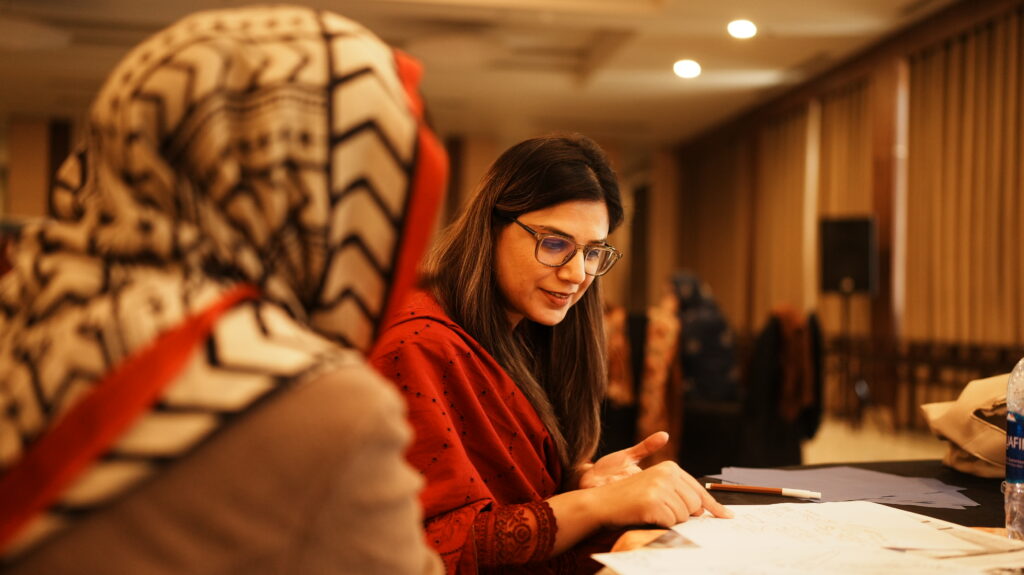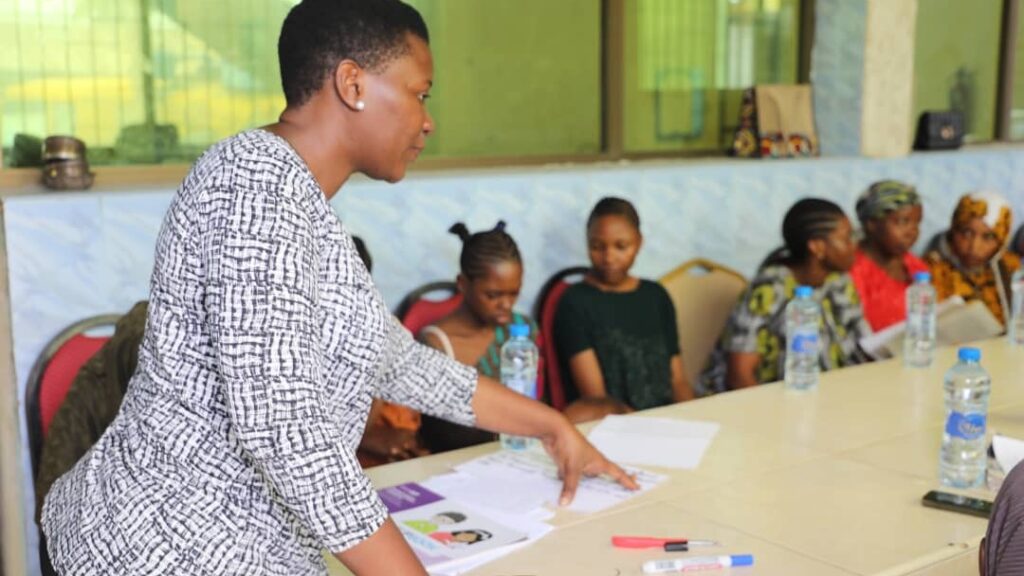
“My child became my friend in a new way. He started telling me everything… That’s one of the biggest benefits I’ve seen.”
– Parent, Tanzania
Across six countries, Brazil, India, Mexico, Pakistan, Sri Lanka, and Tanzania, a transformation is underway. Parents are becoming more patient, children are more peaceful and emotionally aware, and homes are safer, more nurturing places to grow and flourish.
At the heart of this movement is the Toolkit: Nurturing the Spiritual Development of Children in the Early Years, developed by the International Consortium on Nurturing Values and Spirituality in Early Childhood for the Prevention of Violence. Launched in November 2022, the Toolkit provides practical guidance for caregivers, educators, and faith actors to support children’s spiritual development while actively creating the conditions for their protection from violence and for the promotion of their holistic well-being.
Since its introduction, 279 trainers, facilitators, and educators have been trained on how to deliver training sessions and workshops with parents and caregivers. 1,860 parents and caregivers have participated in the workshops across all six countries, which benefited over 5,500 children.
From challenging cycles of violence and neglect to promoting resilience, empathy, and peaceful upbringing, the Toolkit is helping families reimagine parenting in ways that foster connection and understanding.
In Brazil, Pastoral da Criança incorporated the Toolkit into its Celebração da Vida program and adapted it for a mobile app to support home visits. Monthly workshops, held with the support of local universities, helped caregivers learn how to better connect with their children.
“With the knowledge I gained from the course, I am now more patient with my daughters… They no longer misbehave to get my attention, which helps avoid stress for both them and me,” shared a parent.
In Mexico, the implementation of the Toolkit is being led by the Franciscan Sisters and World Vision Mexico. It has been implemented in four states and integrated into “Escuelas para Padres” (Parents’ Schools) and parishes.
“My children have noticed the difference… Before, I used to get angry, but now I understand them better. I have more patience… I understand that they miss their mom, and I must fill that role,” said a widowed father from Veracruz.
Shanti Ashram integrated the Toolkit into their Bala Shanti program (Early Childhood Development Centres) across Coimbatore, serving families in nine villages characterized by multicultural and multireligious diversity. Parents and caregivers took part in Toolkit sessions that explored child rights and non-violent parenting. In communities where corporal punishment remains common, the shift was profound.
“I was repeatedly reminded not to beat or threaten my child… It made me reflect on the times I had done so, and I decided to change,” shared one of the mothers. “My son used to hit others, but now he no longer fights. He speaks with respect… As a mother, this makes me incredibly happy,” she added, noting how her transformation made an impact in her child’s behaviour.

Echoing this sentiment, a mother in Pakistan said, “After taking the training—Masha Allah—it brought a big change in me. I realised that yelling and fighting doesn’t help. It negatively affects the child’s mental health.”
Islamic Relief spearheaded the program in Pakistan, reaching both urban and rural areas through intensive sessions and remote follow-ups. The experience empowered caregivers in meaningful ways. “The widowed women… felt marginalised by society while dedicating themselves to their children. For the very first time, they experienced a profound connection with themselves… They began to recognise their intrinsic value and worth,” noted Ms. Alina Afzal, Assistant Child Care Officer at Islamic Relief Pakistan, and trainer of the Toolkit.
The Sarvodaya Movement in Sri Lanka integrated the Toolkit into pre-schools and community kitchens, complementing nutrition programs with emotional and spiritual development.
“While we often get frustrated with our children’s behaviour, this workshop helped me understand how to manage and balance those emotions… It also helped me teach my child about spirituality,” said a preschool teacher.

Four faith-based organizations—including the Baha’í, Shia and Mennonite communities, and Ladies Joint Forum—began sessions in mid-2024 in Tanzania. The change was immediate and deeply felt.
“I wasn’t close to my son. But after joining this program, something amazing happened. He started telling me everything—what he experiences at school and in the neighborhood. That’s one of the biggest benefits I’ve seen. This program brought real change,” shared a mother.
The Toolkit has demonstrated that protecting children starts with building peace at home. When parents gain the tools to listen, reflect, and respond with love, families flourish, and so do children.
Beyond behavioral change, participants report deeper emotional bonds, greater confidence, and an increased sense of self-worth. In every setting, the Toolkit’s flexible design has made it adaptable to diverse cultures, languages, and traditions, affirming the universal need to protect and nurture childhood.
We extend our heartfelt thanks to the Fetzer Institute, Porticus North America, and Smart Peace for believing in the power of early childhood development rooted in values and spirituality.
We also deeply thank all the Consortium member organizations for their unwavering collaboration, dedication, and commitment to children’s well-being.
Learn more about the Consortium and it’s work, here: https://childspiritualdevelopment.org/